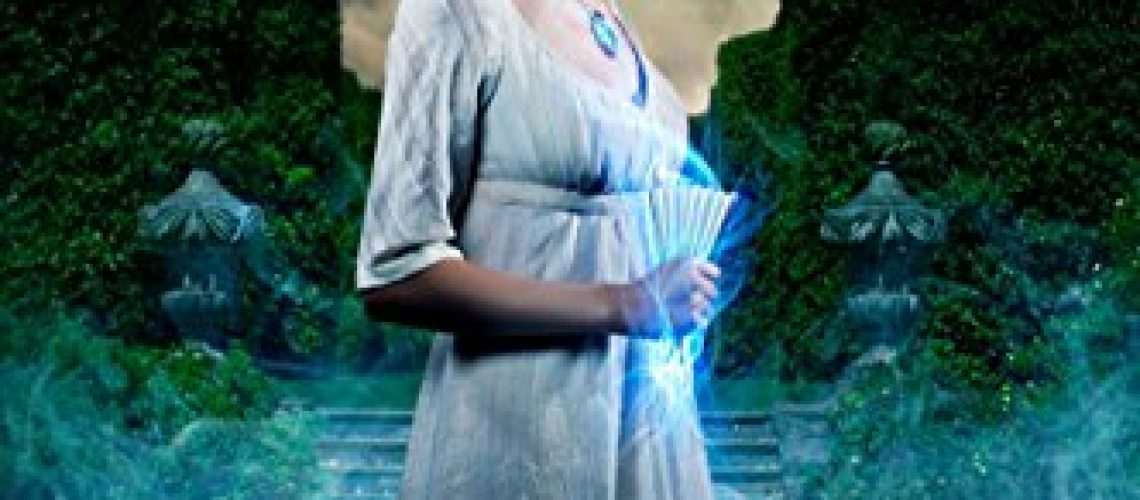If you ever thought Jane Austen needed more demon hunting, The Dark Days Club by Alison Goodman is the book for you.
In Regency London, Lady Helen Wrexhall is preparing for her presentation to the queen. Her parents died under mysterious circumstances no one talks about except to mention the shame Lady Helen’s mother brought to the family. This means that Lady Helen must be a paragon in order to avoid the stain of such an association and marry well.
Which makes it very inconvenient when she starts to manifest unusual abilities. Having grown up being able to read the tiniest signs of emotion in people’s faces, she starts to find herself filled with a restless energy. When one of her family’s housemaids goes missing, Lady Helen sets out to investigate. She finds herself drawn into a shadowy side of the world she never knew existed and to the Earl of Carleston. Through him she learns the truth of her abilities and must choose between her duty to her country and her desire to lead a normal life.
Lady Helen is the perfect heroine for this Regency fantasy. Her intelligence is a key trait; it was delightful that she doesn’t need to be spoon-fed every little detail about the new world in which she finds herself—with a few basic details, she’s perfectly capable of figuring out the implications. When Lord Carleston is less than forthcoming with information, Lady Helen tests her powers for herself.
Her intelligence and curiosity are also liabilities in a society that expects men to do the thinking. The Dark Days Club doesn’t shy away from the sexism inherent in the setting. Although she is considered wealthy, Lady Helen won’t be granted charge of her fortune until she turns 25. Until then, she is at the mercy of an emotionally-abusive uncle, who thinks of her only in terms of ways to marry her off and distance himself from the shame of her mother. The lack of privacy and agency granted to ladies of the nobility constantly hampers Lady Helen in her investigation. And, indeed, society sees very little need to investigate the disappearance of a lowly housemaid.
Which brings me to the Dark Days Club itself. The eponymous organisation is dedicated to combating the demon presence in England. Their members are called Reclaimers and possess supernatural speed and strength. Given that their duties put them in touch with aspects of the world hidden from the general population, you might expect them to be a free-thinking and progressive society. However, we quickly learn that’s not the case. It turns out the Lady Helen is their only female Reclaimer. She is expected to eschew combat in favour of more sedate (and occult) duties.
The premise and the sexism in the setting could have left readers with the feeling Lady Helen was Not Like Other Girls. This is somewhat mitigated by her desire for a normal life and her connection with other women, because just as the mores of the time curtail Lady Helen’s movements, they also mean she’s most frequently in the company of other women. We get to see her friendship with other ladies of the nobility, as well as her strong connection to her maid Darcy. These relationships are filled with genuine affection and warmth. Indeed, it is at Darcy’s behest that Lady Helen begins investigating the housemaid’s disappearance, setting events in motion. However, Lady Helen is always conscious that—with the exception of Darcy—she can never be completely honest with her friends.
Fans of the other Darcy—Jane Austen’s Fitzwilliam Darcy—are likely to find a lot to like in Lord Carleston. Aside from rank, wealth and good looks, both are commanding and taciturn. The first encounter between Lord Carleston and Lady Helen rather echoes that between Lizzy and Darcy, in that Carleston fails to make a good impression on Lady Helen. However, Carleston is a character with more edges than his counterpart from Pride and Prejudice. Local gossip has it that he killed his wife four years ago, though a body was never found. Since Lady Helen is already looking to avoid the stain of her mother’s disgrace, being associated with a figure like Carleston is not likely to help. Even once she begins to warm to him, it doesn’t quite dispell her feelings of unease, since it is plain he has his own agenda and hasn’t been entirely forthcoming with her. This, combined with his supernatural abilities and superior training, makes him a dangerous figure.
Fortunately for Helen, there’s a far more suitable romantic match in the Duke of Selburn. As charming as Carleston is austere, the Duke seems to genuinely like Lady Helen for who she is. That makes it all the harder for Lady Helen to keep her secrets. A history of bad blood between the Duke and Lord Carleston adds to the tension.
It’s plain that a great deal of historical research has gone into the story, though it doesn’t hit you over the head. Rather, it shows itself through how thoroughly the story is grounded in its setting. This isn’t just a Regency overlay for Buffy the Vampire Slayer. Not only are Lady Helen’s concerns firmly part of the time, but the little details are pitch perfect. It will get you thinking about just how awkward it is to put on or take off leather gloves.
This attention to detail also extends to use of language. It uses an Austen-inspired formal style, while taking care to remain readable to a modern audience. There’s a sprinkling of period-specific terminology, but context makes the meaning plain. Nevertheless, it is a book intended for the older end of the young adult market, with cross-over appeal to an adult audience.
All in all, The Dark Days Club demonstrates the best of historical fantasy and is an enthralling start to the series.









0 Responses